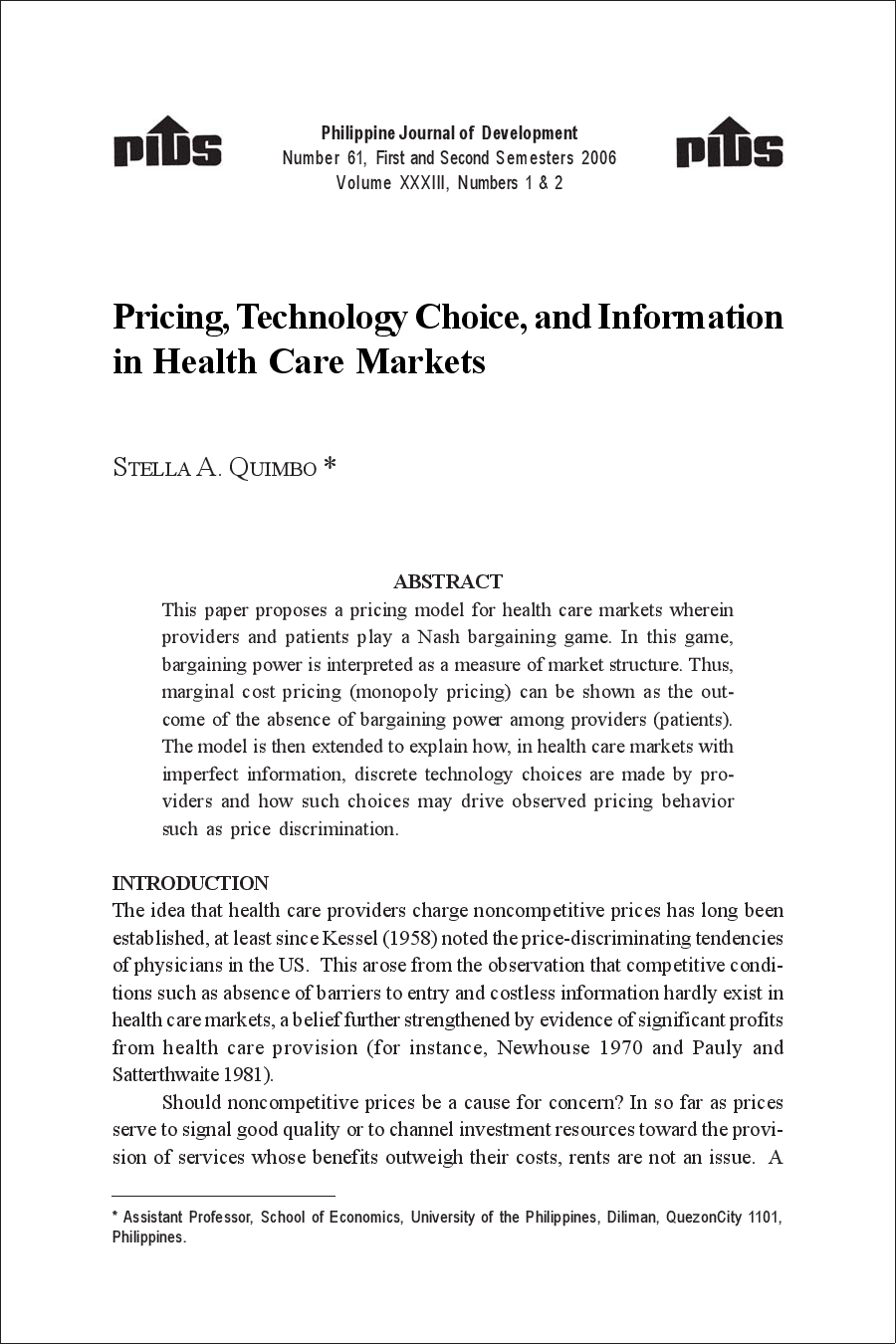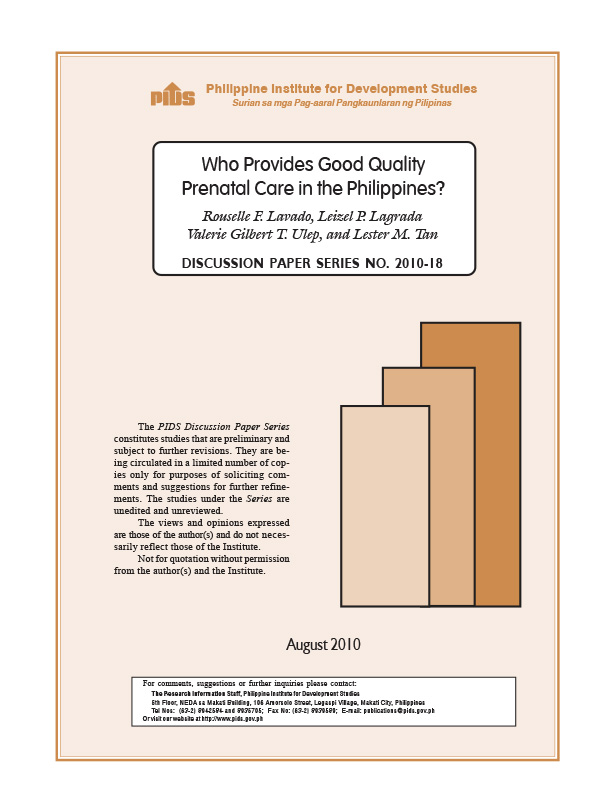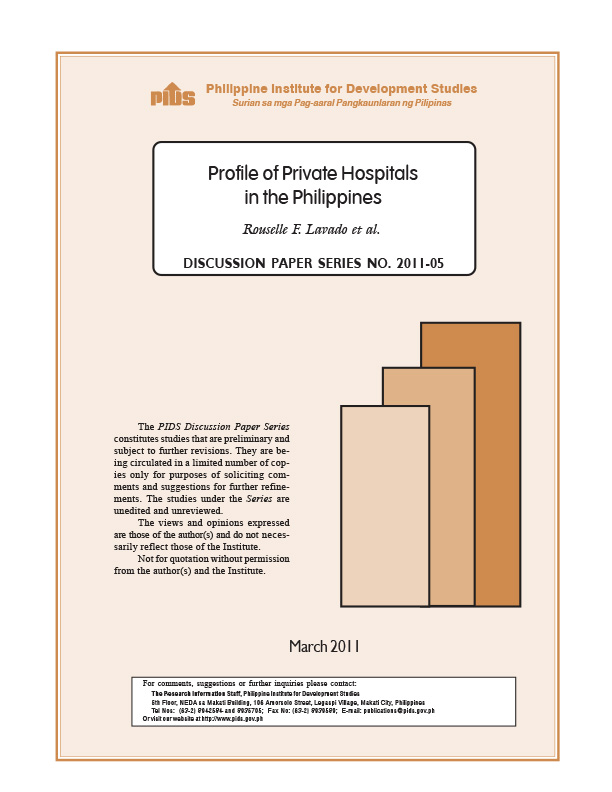This paper proposes a pricing model for health care markets wherein providers and patients play a Nash bargaining game. In this game, bargaining power is interpreted as a measure of market structure. Thus, marginal cost pricing (monopoly pricing) can be shown as the outcome of the absence of bargaining power among providers (patients). The model is then extended to explain how, in health care markets with imperfect information, discrete technology choices are made by providers and how such choices may drive observed pricing behavior such as price discrimination.













